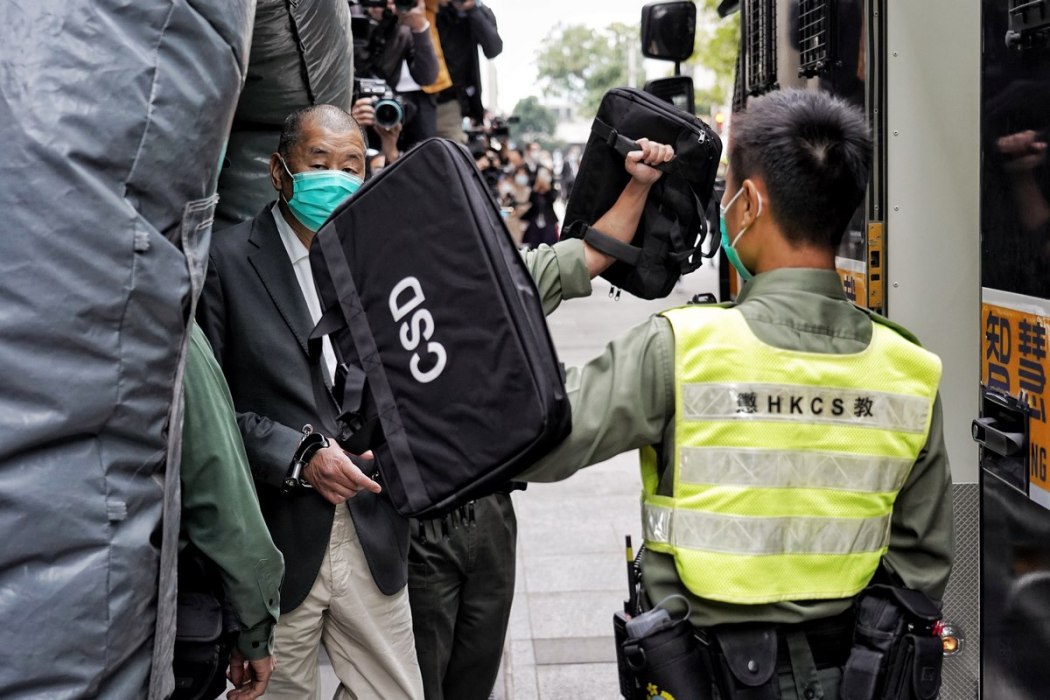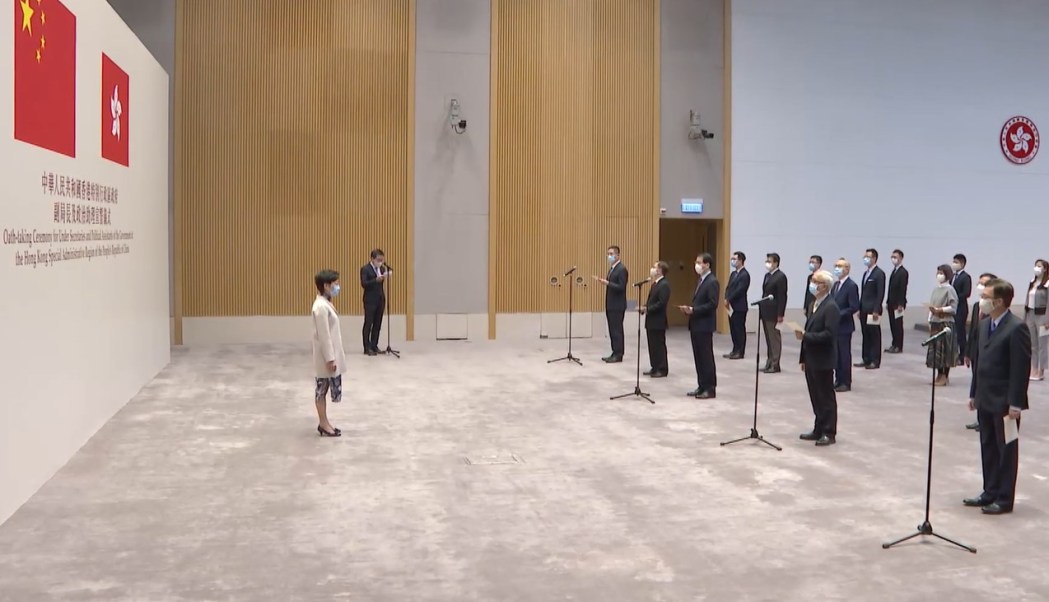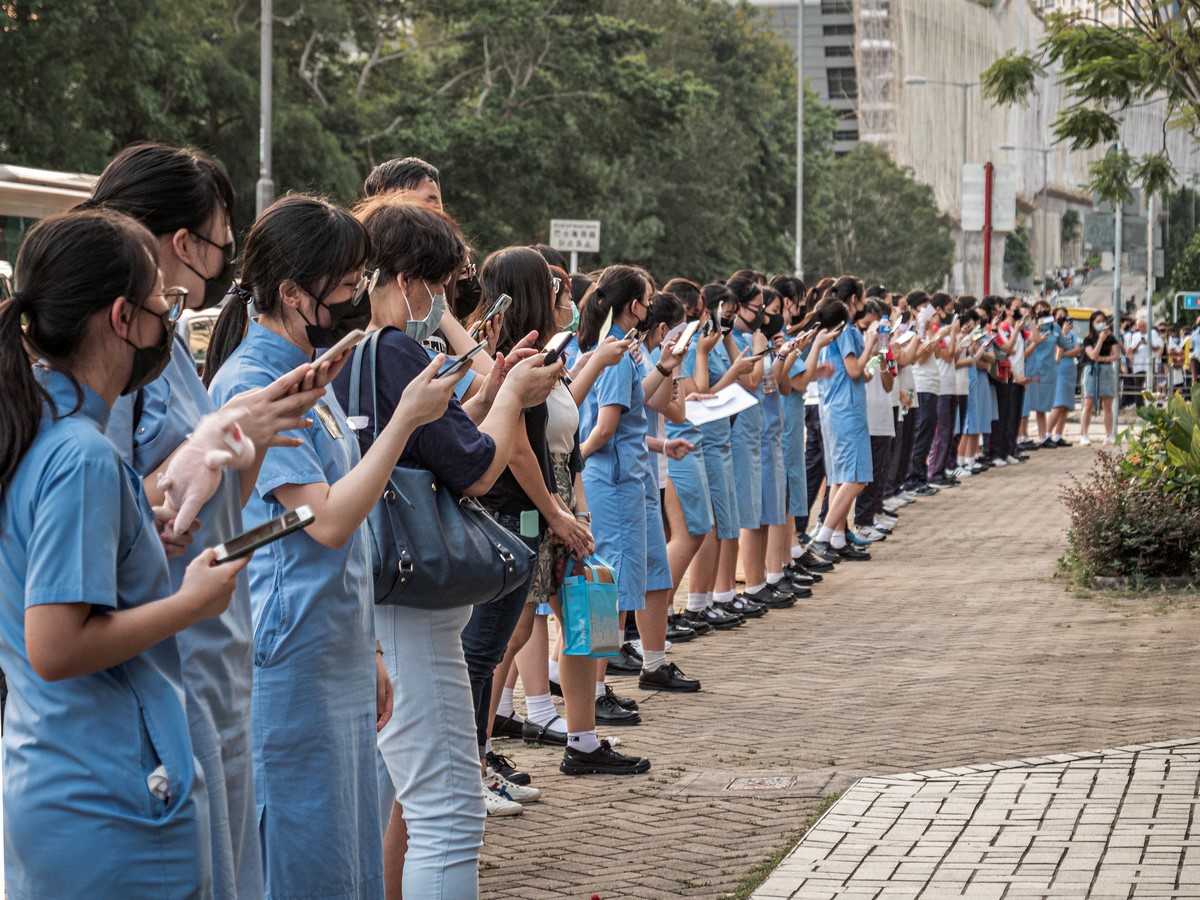Almost a year after Beijing imposed of a far-reaching national security law on Hong Kong, most of the city’s democratic voices are behind bars and a significant portion of international businesses operating in the city are mulling escape plans.

First frozen assets
Hong Kong’s Security Bureau used its powers under the security law for the first time to freeze assets owned by pro-democracy newspaper Apple Daily’s founder Jimmy Lai. This included all his majority shares in Next Digital, the paper’s parent company.
The move prompted warnings from neighbouring Taiwan that the security law increased business risks in the city.

However, Chief Executive Carrie Lam said the move would bolster, not undermine, the city’s status as an international financial centre, while Secretary for Security John Lee said the freezing of Lai’s assets was an issue of national security and not press freedom.
The secretary also sent Lai’s bankers at HSBC and Citibank letters warning them they could face up to seven years in prison if they deal in the frozen assets, according to a Reuters report.
Democrats quit politics
At least thirty democrats have stepped down from their political posts since the law was imposed. Some elected district councillors quit, citing political uncertainty, while others announced their resignations from behind bars, where they await a trial over alleged “conspiracy to commit subversion.”
Authorities extended a mandatory oath of allegiance to the government and the Basic Law to all public officers, including district councillors, prompting yet more democrats to step down.
Two elected pro-democracy district councillors already remanded in custody over national security charges were officially ousted from their offices as the law was enforced. On the same day, authorities announced the same oath will also be required of government contractors.

The oath had already been required of all the city’s civil servants since January. Official government figures showed over 1,800 civil servants have quit in the past year — a record high.
Vigil banned again
Authorities officially banned the annual candlelight vigil for victims of the 1989 Tiananmen Massacre for the second year in a row, again citing public health concerns during the Covid-19 pandemic. A statement from the Security Bureau warned anyone participating in an unlawful assembly on June 4 could face up to five years in prison.
Prominent activist “Grandma Wong” was arrested for a one-person June 4 protest the weekend before the vigil was originally set to take place, while street booths set up to commemorate the massacre were approached by police.

There are also signs authorities are looking to remove other ways of remembering the massacre. Earlier in the month, government officials approached the city’s pro-democracy medical union to warn them against the screening of a documentary about the massacre, while public broadcaster RTHK axed a story on a long-distance run to commemorate it.
Meanwhile, four pro-democracy activists have been jailed for attending last year’s unauthorised vigil, while 20 more await trial.
Trade unions and security law
The Labour Department has plans to create a new role of “chief labour officer” to oversee the city’s trade unions’ compliance with the security law.
The development came as the city’s secretary for labour and welfare said the department was responsible for ensuring the city’s unions complied with the law, sparking fears of an impending political purge of pro-democracy unions.
Books pulled
Nine more books written by pro-democracy figures and Beijing critics were pulled from public library shelves to be “reviewed” for security law violations. Authorities have confirmed to HKFP that 34 books are currently under review.
Teachers hit
Two more teachers were banned from the profession for life by the Education Bureau over their connection with the 2019 pro-democracy protests and unrest.

Meanwhile, 15 new frameworks have been issued by the bureau’s detailing its plans for national security education in primary and secondary schools. The new guidelines cover subjects ranging from primary school Mandarin lessons to upper secondary IT classes. Subjects including history and economics are to be taught through “patriotic” lenses.
Kid clothing store shut
Pro-democracy clothing company Chickeeduck‘s Tsuen Wan branch was cordoned off by police two days after it was first opened. Police entered the premises with a search warrant but made no arrests.

The store was later allowed to re-open. The business had previously run into problems with suppliers on mainland China.
Businesses confidence
An survey conducted by the American Chamber of Commerce found over 40 per cent of its members are considering leaving the city. A majority of the businesses mulling a move cited concerns under the security law as a key reason.
Support HKFP | Policies & Ethics | Error/typo? | Contact Us | Newsletter | Transparency & Annual Report | Apps
Help safeguard press freedom & keep HKFP free for all readers by supporting our team
























